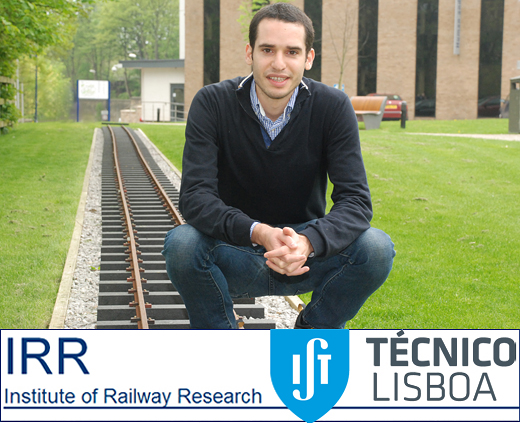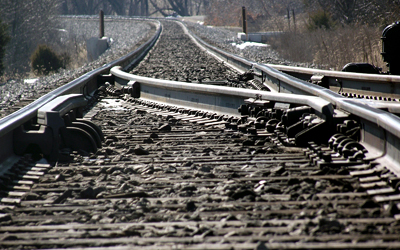Institute of Railway Research link with Portugal’s celebrated IST
 Dr Antonio Andrade has been appointed as a Research Fellow within the University's Institute of Railway Research (IRR)
Dr Antonio Andrade has been appointed as a Research Fellow within the University's Institute of Railway Research (IRR)
Wed, 07 May 2014 14:49:00 BST
New research centre paves way for Portuguese partnership as £20 million Centre for Innovation in Rail takes shape
THE appointment of Dr Antonio Andrade as a Research Fellow means that the University of Huddersfield’s Institute of Railway Research (IRR) has further expanded its skills base.
The IRR – which will have grown by at least ten members before the end of 2014 – consists largely of mechanical engineers. But Dr Andrade, who has recently completed his PhD at the Instituto Superior Tecnico in his native Portugal, is a civil engineer whose training has included a year at the USA’s Massachusetts Institute of Technology.
His thesis dealt with aspects of rail track geometry and how faults can be predicted, leading to the optimisation of maintenance. With his specialist knowledge and skills, Dr Andrade has joined the IRR in order to take part in the major partnership it has formed with the Rail Safety Strategy Board (RSSB).
He also adds to the multi-national nature of the IRR’s expanding team. In addition to researchers from the UK, it also has experts from Italy, China, Latvia, France, Iraq and now two from Portugal.
 £20 million Centre for Innovation in Rail
£20 million Centre for Innovation in Rail
In addition to funding from the RSSB, the Institute has also recently received £4 million from the EU’s Regional Growth Fund, which will go towards the creation of the new £20 million Centre for Innovation in Rail (CIR), due to be housed at the University of Huddersfield. The RGF funding will also aid the recruitment of ten new posts, meaning that the IRR will soon be 35-strong.
The new specially-equipped CIR will expand to include a lab large enough to accommodate a full-size railway bogey.
The IRR is headed by Professor Simon Iwnicki, who said that Dr Andrade’s recruitment would help to develop links with Portugal’s Instituto Superior Tecnico.
“We are working in a similar area and it makes sense to collaborate,” said Professor Iwnicki. The two institutes have worked together on a joint bid for funding via the EU’s new Horizon 2020 research and innovation programme.
Both Professor Iwnicki and his new Portuguese research fellow agree that rail travel has an important future, but must strive to remain competitive with other modes of transport.
“They face competition from developments such as the electric car and car pooling strategies, so railways need to become more and more innovative,” said Dr Andrade.







